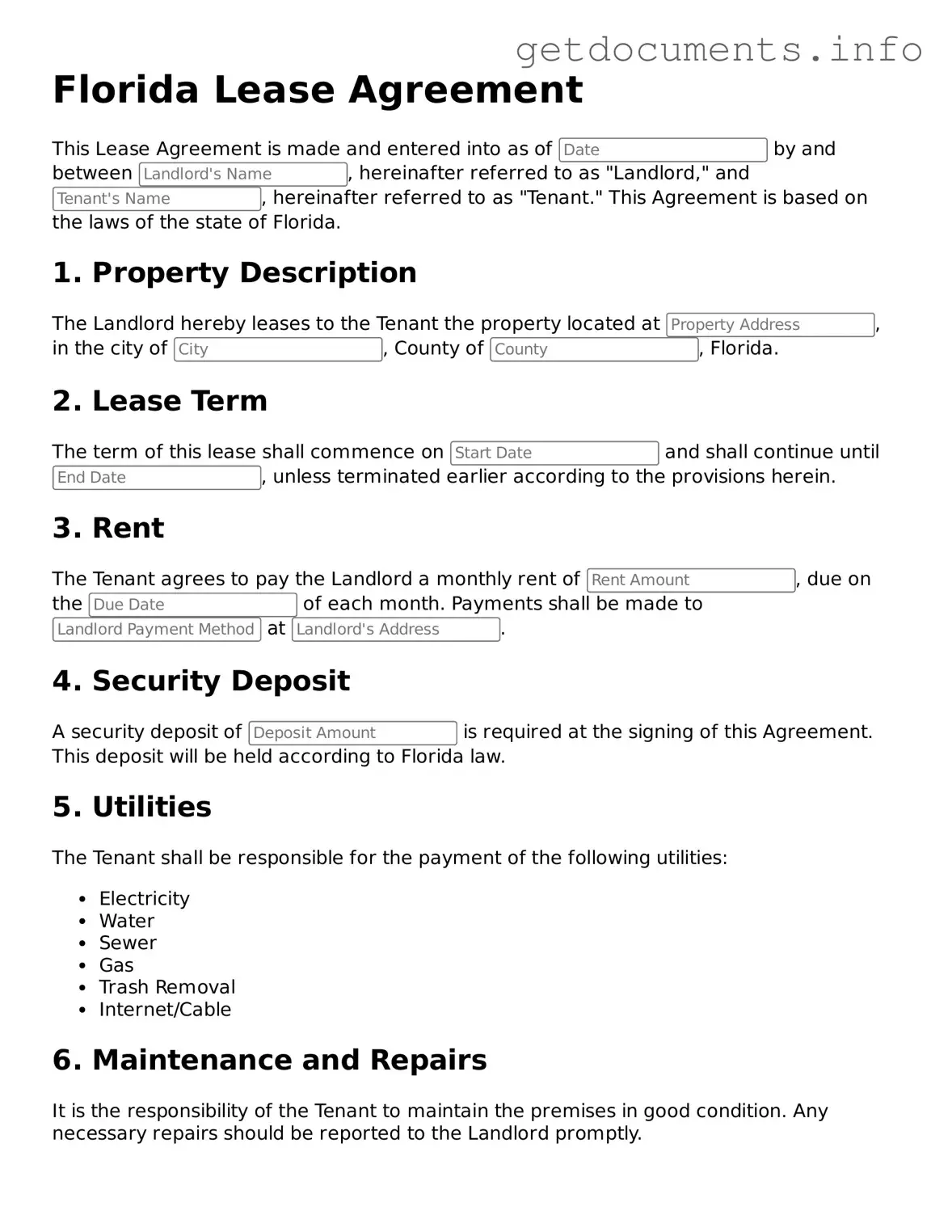Free Lease Agreement Template for Florida
A Florida Lease Agreement form is a legal document that outlines the terms and conditions between a landlord and tenant for renting residential or commercial property. This essential contract protects the rights of both parties while ensuring a clear understanding of their responsibilities. To get started on your leasing journey, fill out the form by clicking the button below.
Access Lease Agreement Editor

Free Lease Agreement Template for Florida
Access Lease Agreement Editor
Got places to be? Complete the form fast
Fill out Lease Agreement online and avoid printing or scanning.
Access Lease Agreement Editor
or
⇩ PDF File
